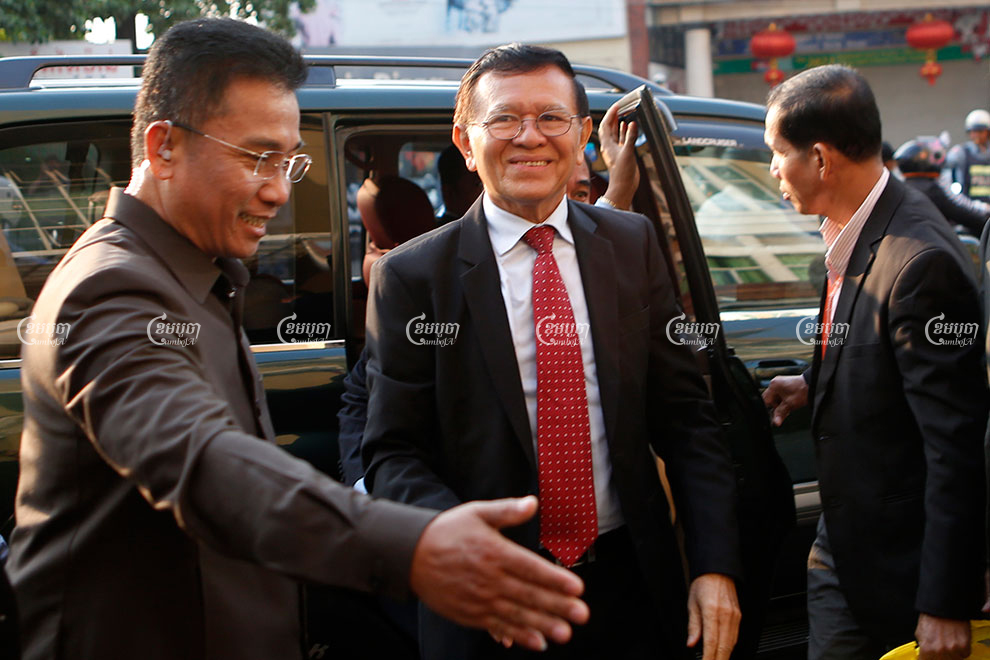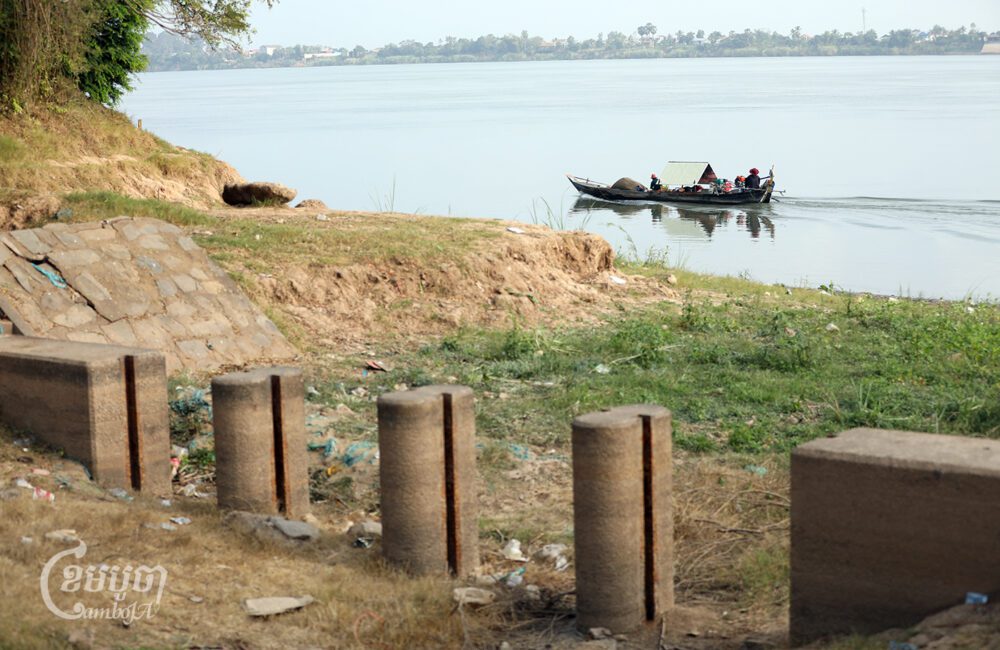The Phnom Penh Municipal Court has shown no inclination to resume opposition leader Kem Sokha’s treason trial, which was suspended last March, with observers saying political calculations around the trial were affecting the former CNRP president’s fair trial rights.
The contentious trial commenced in January and was suspended in March because of the increase in COVID-19 cases in Cambodia. Sokha is charged with committing treason for allegedly attempting a so-called color revolution against the government.
While the court has shown no inclination to resume Sokha’s trial, it has continued to function normally over the past few months, even initiating new trials against rights activists and members of the Cambodia National Rescue Party, most of whom were Sokha’s colleagues at the now-dissolved party.
Taing Sunlay, president of Phnom Penh Municipal Court, said on Tuesday said the court had not set a date for resumption of the trial and referred all further queries to the presiding judge. Judge Koy Sao could not be reached for comment on Wednesday.
Chan Chen, one of Sokha’s defense lawyers, said Sokha’s legal team had requested judge Koy Sao to resume the trial in June and October last year but had received no response from the court. He said the delay in the trial was affecting his client’s fair trial rights.
“It has been a long time since the court suspended the trial; it is really affecting the rights of our client,” he said. “As Kem Sokha’s defense lawyer, [I request] the court to resume the trial and not hold it in limbo like this.”
He said that courts across the country, including the Phnom Penh Municipal Court, were functioning normally despite concerns over the ongoing COVID-19 pandemic.
In the last three months of 2020, the government announced restrictions and business and school closures because of two COVID-19 outbreaks, one of which was the country’s first instance of community transmission. However, limited restrictions were placed on the courts during this period.
Justice Ministry Spokesperson Chin Malin said the ministry could not interfere with the court’s decisions nor could it order judges to commence or resume trial hearings. He added that courts were currently working on the ministry’s campaign to clear the massive backlog of cases in the country.
“As I know the court is busy with the campaign to deal with the backlog of cases and priority cases are criminal cases [where the defendant is] in detention,” Malin said.
However, political observers said the decision to maintain uncertainty around Kem Sokha’s case was more a political calculation by the ruling Cambodian People’s Party.
Sophal Ear, an associate professor at the Occidental College in Los Angeles, said the ruling party was keeping Sokha “stewing or in a holding pattern” to keep control over his political future.
“The benefit of [CPP] is to keep him in a kind of purgatory whether before release or execution,” he said. “It’s like being in hell. Neither alive nor dead,”
Sophal added that the CPP had time and again attempted to “divide and conquer” the CNRP, but that the opposition movement to the government had persisted.
“The impact is to only delay the inevitable. Nothing is permanent. Change will come. No one can escape change,” he said.
Pa Chanroeun, the president of the Cambodian Institute for Democracy, said the government’s decision in the Sokha case would impact the credibility of the upcoming commune election in 2022 and the general election in 2023.
“If former opposition party leaders are in limbo and there is no political resolution, then the 2022 and 2023 elections will become a competition among parties who do not have enough credibility to contest the election against the CPP,” he said.
He pointed to the 2018 national election, which occurred after the dissolution of the CNRP in November 2017. He said despite the presence of many parties on the ballot there was no credible threat to the CPP’s hold on power.
The 2018 election was contested by 20 parties, none coming close to gaining any seats in parliament. The CPP has near-absolute control over both houses in parliament after it won all 125 seats in the National Assembly in 2018.
Chanroeun said that while Sokha’s trial was on hold, the courts were continuing to pursue charges against his colleague and former CNRP president Sam Rainsy.
The Phnom Penh court will commence a trial this week against more than 130 former CNRP leaders, members and supporters for alleged incitement and conspiracy. Around 60 individuals, including Sam Rainsy, will be tried starting Thursday and the remaining defendants will be in court on March 4.
Chak Sopheap, executive director at the Cambodian Center for Human Rights, said the continued delay of the trial of Kem Sokha was unjustifiable and there was no legitimate reason for the trial to be further postponed.
“The longer the case is postponed unduly, and the fair trial rights of Kem Sokha are disregarded, the argument that this case is politically motivated becomes stronger,” she said.
She added that the suggestion by the Prime Minister that the trial will be delayed to 2024, until after the elections, reveals political motivations behind the charges against Sokha.
Sokha is currently under judicial supervision and while he is allowed to travel within the country, he is still barred from conducting any political activity. The former CNRP president had made numerous provincial trips recently, where he has on occasion met supporters of the party, and routinely hosts ambassadors at his residence.








